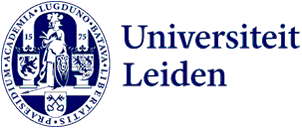278 search results for “organised chemistry” in the Staff website
-
 Lies Bouwman
Lies BouwmanScience
-
 Emma Brekelmans
Emma BrekelmansFaculty Governance and Global Affairs
-
 Evani Lachmansingh
Evani LachmansinghScience
-
 Alexander Kros
Alexander KrosScience
-
 Marie-Jetta den Otter
Marie-Jetta den OtterICLON
-
 Aukje Nauta
Aukje NautaFaculteit der Sociale Wetenschappen
-
 Saniye Çelik
Saniye ÇelikFaculty Governance and Global Affairs
-
 Willie Peijnenburg
Willie PeijnenburgScience
- Organising education
-
Organisational structure
This website provides an overview of the organisational structure of Leiden University. Here you can find contact details of secretariats, staff lists by department, co-participation bodies, and regulations.
-
 Arjan de Koning
Arjan de KoningScience
-
 Femke Reidsma
Femke ReidsmaFaculteit Archeologie
-
 Nicola Thome
Nicola ThomeScience
-
 Lars Jeuken
Lars JeukenScience
-
 Sander van Kasteren
Sander van KasterenScience
-
Organising assessments
From assessment periods and deadlines to invigilators and organising digital assessments. Everything you need to think about for planning, organising and communicating assessments.
-
Organising online events
The Events Office is happy to help organise an online event, but you can also do it yourself. You will find resources and support for this on this page.
- Organising (summative) testing
-
Organising digital assessments
When organising a digital exam, you need to book a location in time and request the exam from ECOLe. Below are the steps you need to follow to make the process run smoothly.
-
Making the invisible visible with ‘click chemistry’
Sander van Kasteren (Professor of Molecular Immunology) makes the invisible visible. He will explain more in his inaugural lecture.
-
How bittersweet sugar chemistry targets pathogens
The challenge is considerable, but so is the satisfaction when it succeeds: creating complex sugar molecules that play a role in biology.
-
 Fallon Cooper
Fallon CooperFaculteit Rechtsgeleerdheid
-
Apply for the Lorentz Center Chemistry Workshop competition
Research
-
Helping students with micro-macro thinking in chemistry
How do classroom demonstration experiments help students learn chemical reasoning? Marie-Jetta den Otter, PhD student at ICLON, researched this. She defends her thesis on 6 December.
-
 Stewart McDowall
Stewart McDowallScience
-
The Nobel Prize in Chemistry went to an AI model (and rightly so)
Not experiments and lab coats, but computers and artificial intelligence: this year's Nobel Prize in Chemistry went to the inventors of the groundbreaking AI model, AlphaFold. This programme accurately predicts protein structures based on their genetic code—a crucial step in understanding biological…
-
 Densua Mumford
Densua MumfordFaculty Governance and Global Affairs
-
 Marleen Stolze
Marleen StolzeFaculty Governance and Global Affairs
-
 Alanna O'Malley
Alanna O'MalleyFaculty of Humanities
-
 Sanneke Kuipers
Sanneke KuipersFaculty Governance and Global Affairs
-
 Francesco Buda
Francesco BudaScience
-
 Mario van der Stelt
Mario van der SteltScience
-
 Roxanne Kieltyka
Roxanne KieltykaScience
-
 Madeline Kavanagh
Madeline KavanaghScience
-
Tips & tricks for organising peer feedback
Didactics
-
Natalia Ortiz – Winner of the 2019 - 2020 KNCV Medicinal Chemistry & Chemical Biology thesis prize
Natalia Ortiz (Division of Drug Discovery and Safety) has been awarded the 2019-2020 PhD-thesis prize by the Division of Medicinal Chemistry & Chemical Biology, from the Royal Netherlands Chemical Society (KNCV-MCCB). The KNCV-MCCB thesis prize is a biannual award which is granted to the best PhD thesis…
-
In memoriam Harold V.J. Linnartz 1965 – 2023: Unlocking the Chemistry of the Heavens
With great sadness we share the news that Prof. Harold Linnartz passed away suddenly and unexpectedly on Sunday 31 December 2023. We are all in shock, and our thoughts are with his wife and children, other family, and friends. Harold was at the heart of our institute, as a researcher, as a supervisor,…
-
 Young Hae Choi
Young Hae ChoiScience
-
‘I am curious and full of passion for understanding molecular chemistry’
Since May, Assistant professor BioTherapeutics Lu Su works in our faculty. Although she is still young, she already worked in many different fields and co-operated on two publications in big scientific journals. How did she become so successful and what motivates her to keep researching the possibilities…
-
Modified caffeine molecules help medical research move forward
Before researchers can develop targeted drugs, they need to know exactly how a disease works. Biochemist Bert Beerkens created molecules that allow them to find out. He used caffeine as the basis for new molecules that enable research into certain receptor proteins on cells.
-
 Gisela Hirschmann
Gisela HirschmannFaculteit der Sociale Wetenschappen
-
 Marieke Kluin
Marieke KluinFaculteit Rechtsgeleerdheid
-
 Martijn Mos
Martijn MosFaculteit der Sociale Wetenschappen
-
Daniel Thomas
Faculteit der Sociale Wetenschappen
-
 Sandra Groeneveld
Sandra GroeneveldFaculty Governance and Global Affairs
-
 Madeleine Hosli
Madeleine HosliFaculty Governance and Global Affairs
-
 Dovile Rimkute
Dovile RimkuteFaculty Governance and Global Affairs
-
 Ton van Gestel
Ton van GestelFaculty Governance and Global Affairs
-
 Jorrit Smit
Jorrit SmitFaculteit der Sociale Wetenschappen
-
 Elmer Maurits
Elmer MauritsScience
